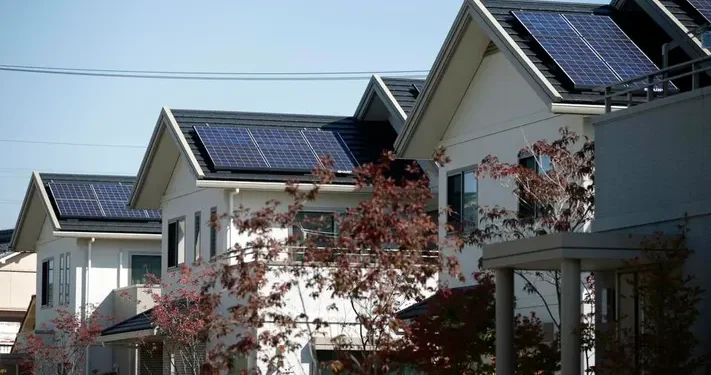Putting a house with solar panels on the market can provide a significant edge in the real estate landscape. Solar installations boost the home’s market attractiveness through lower energy costs and significantly increase its property value. Yet, the selling process is more complex than merely showcasing these advantages. Homeowners need to handle various aspects, such as determining the panels’ ownership status, the ability to transfer contracts, and making sure all critical documentation is prepared and clear for potential buyers.
Benefits and Market Appeal
Solar panels can cut household electricity costs by up to 50%, offering substantial savings and attracting environmentally conscious buyers. Additionally, properties with solar panels tend to have a higher selling price due to their reduced utility bills and potential tax credits. Stable Solar notes that solar-equipped homes can add as much as 4.1% in value compared to non-solar homes, often selling faster and at higher prices due to their appeal to energy-conscious buyers.
Legal and Financial Considerations
When marketing a home equipped with solar panels, it’s vital to grasp and communicate the legal and financial consequences. Ownership is a significant factor; owned systems can boost property value more than leased systems, as they come without transferring leasing agreements.
It’s essential to inform potential buyers about existing warranties, maintenance records, and performance guarantees. Additionally, ensuring that the installation adheres to state-specific regulations, like those specified in the Solar Energy Act, is crucial to prevent legal issues during the sale.
Effective Marketing and Educating Potential Buyers
Educating potential buyers about the benefits and workings of solar panels is critical to a successful sale. Homeowners should prepare comprehensive documentation, including proof of installation, maintenance history, and inspections. It is also essential to highlight the financial benefits like energy savings and tax credits, which can be compelling selling points. Also, homeowners should ensure their real estate agents are well-versed in handling solar-equipped properties to address any concerns from buyers effectively.
Preparing for Sale and Conclusion
Before listing the house, owners should inspect the solar panel system professionally to ensure functionality and address any repair needs. Keeping the system and home in top condition maximizes the property’s appeal and value. Proper preparation, including routine maintenance and thorough documentation, is essential for leveraging the benefits of solar power and ensuring a smooth selling process.
In conclusion, while selling a house with solar panels presents unique challenges, it also offers significant benefits that greatly enhance a home’s marketability and potential sales price. Homeowners stand to gain by thoroughly preparing for the sale, addressing all necessary legal and financial details, and effectively marketing the solar benefits to attract the right buyers. By emphasizing the energy savings, reduced carbon footprint, and potential tax credits associated with solar panels, sellers can appeal to a growing segment of eco-conscious consumers.
Additionally, ensuring that all aspects of the solar installation are transparent and in line with local regulations will help alleviate potential buyer concerns, making the transaction smoother and more appealing. With the right approach, solar panels can be a compelling selling point that distinguishes a property in a competitive market and helps homeowners achieve a successful and profitable sale.



